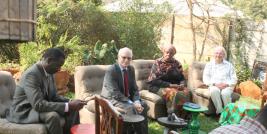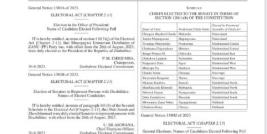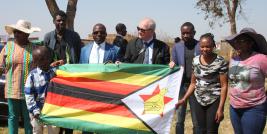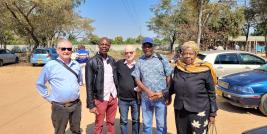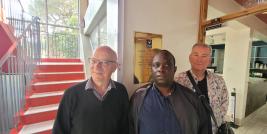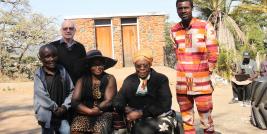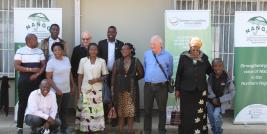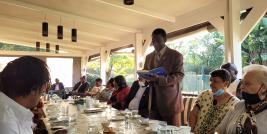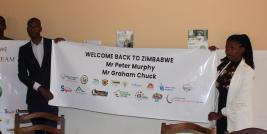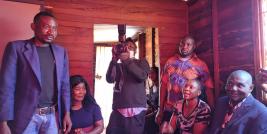The Zimbabwe Information Centre has been waiting for a clear picture to emerge following the national and provincial and local elections held on Monday, July 30, 2018. The election day was remarkably peaceful and happy, with a very large number of international and national observers reporting in these terms. However, a very violent set of events broke out on Wednesday August 1, with a violent mob attack organised against the Zimbabwe Election Commission and on cars and properties in the surrounding area, and this was responded to with police violence, ultimately backed up by an army unit which shot dead 7 people and wounded many more.
Now the full bench of the Constitutional Court is set to announce its decision at 2pm Harare time today, August 24, (10m Australian Eastern Standard Time), on an appeal against the ZEC declaration of the result on Thursday August 2, which was that Emmerson Mnangagwa had won outright with 50.8 per cent of the vote, compared to 44.3 per cent of the vote for Nelson Chamisa.
Credible reports indicate that the atmosphere in Harare is primed for a repeat of the August 1 violence if the Constitutional Court confirms the ZEC declaration in favour of Emmerson Mnangagwa. This is widely perceived as a Mugabe intervention and strongly resented.
The riotous event of August 1 was fomented by MDC Alliance leaders asserting that the ZEC was stealing the election, which they claimed their Presidential candidate, Nelson Chamisa, had won overwhelmingly. In fact, Chamisa had declared himself the winner several times before any votes were cast, and stated that any other outcome would be a theft of the election. Many of the rioters reported to be calling out “Gushongwa”, a reference to former President Mugabe. The violence only served to wreck the broad perception that the elections, though flawed, were the best elections ever held in Zimbabwe. This only served the Mugabes, and not the people.
All the international observer groups endorsed the election process, but several also expressed criticism of ZEC for taking too long to declare the Presidential election result. This reflected the tension of that week, more than any serious problem at ZEC. According to law, ZEC had until Saturday August 4 to declare the outcome. With 23 Presidential candidates, there was a tedious process in having each candidate’s agents confirm the ZEC’s confirmation of results. Notably, Eddie Cross, a senior MDC Alliance figure, came out early to declare the ZEC result was credible.
Police and some military were reported to be hounding MDC Alliance supporters in Chitungwiza and other localities following the deadly violence of August 1. Video clips give credence to this, but in fact very little evidence has been provided that this in fact took place. A war of fake news has been raging in Zimbabwe since August 1. However, one definite event was the flight of Peoples Democratic Party leader and elected MP Tendai Biti to neighbouring Zambia, where he was turned away when seeking political asylum, and returned to Zimbabwean territory where he was arrested. Police allege that he incited violence and usurped the role of ZEC in declaring the result of the election. Tendai Biti is yet to appear before a court hearing. Emmerson Mnangagwa, in his role as caretaker president, has promised a vigorous inquiry into the military shootings, but this has not yet been convened. Mnangagwa said he was waiting to be inaugurated before proceeding with this.
Much has been written about the evidence tendered in the Constitutional Court hearing, some asserting that it is obvious and incontrovertible that Nelson Chamisa should be declared elected President, and others equally strongly asserting the abject failure of Chamisa’s claim.
The United States government has decided already that the election was not fair and credible, and stated that it will continue to hold back economic aid until there is a credible democratic government.
Zimbabwe Information Centre, Australia

